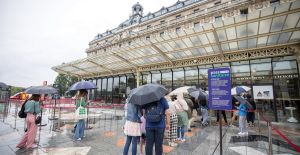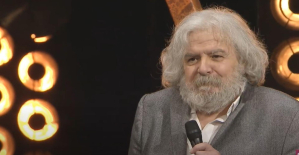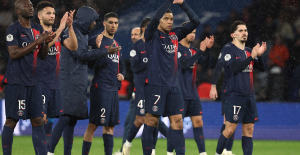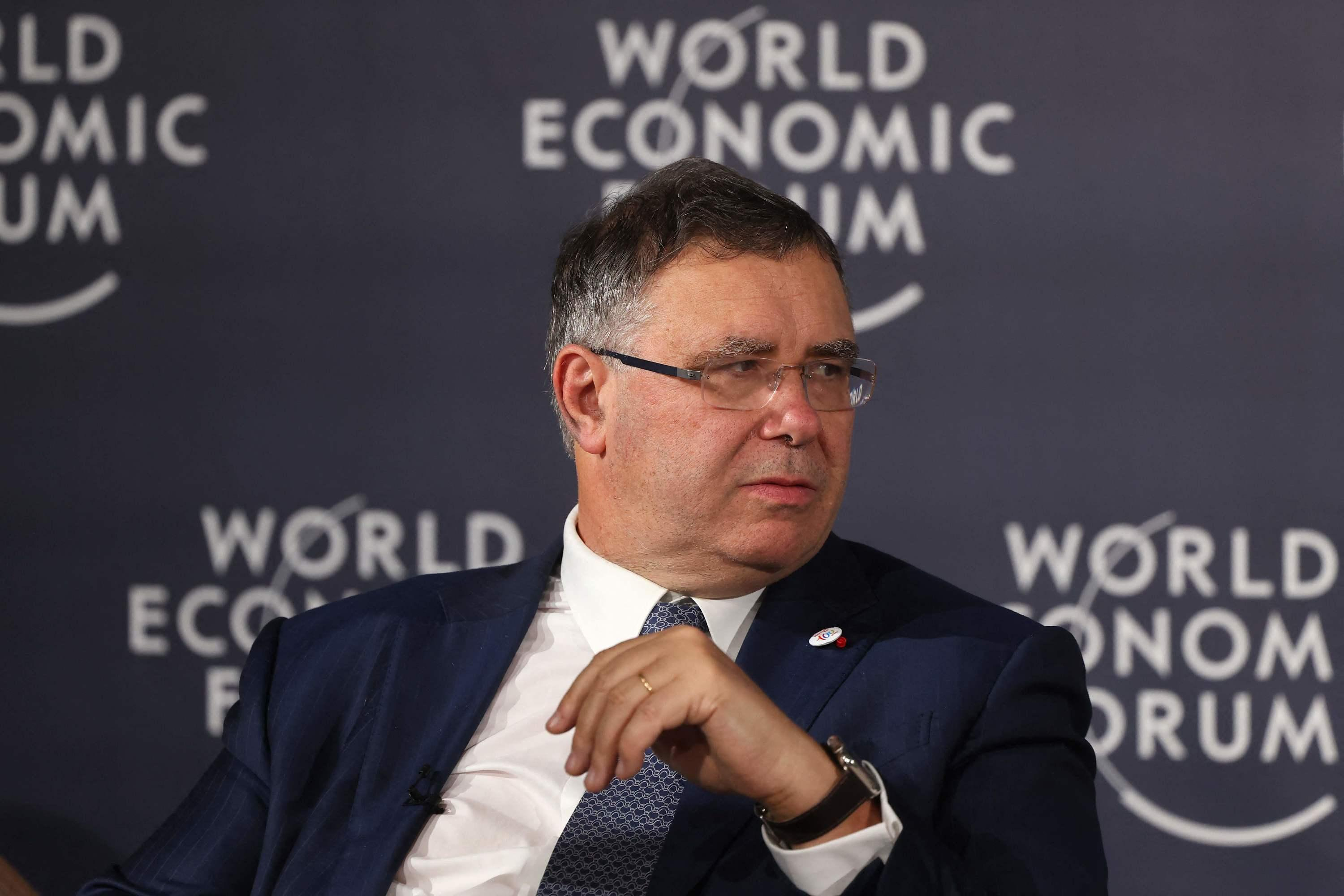In May of this year, a scandal broke out at the annual conference of the German writers' association PEN. PEN President and WELT journalist Deniz Yücel then resigned his office in a dispute and left the German PEN center (based in Darmstadt). Numerous members did the same, in June a new association was founded to compete with Darmstadt: PEN Berlin, which now has over 450 members. They see themselves "as an NGO for human rights issues," emphasizes Eva Menasse, who acts alongside Yücel as spokeswoman for PEN Berlin. Before its first meeting, she is here to answer questions.
WORLD: Ms. Menasse, how many members does PEN Berlin have almost six months after it was founded?
Eva Menasse: We are now at 457 members.
WORLD: How do you become a member?
Menasse: We have moved away from the guarantor principle, as was customary at the PEN Center Germany, because there is a risk that the same type of people will always catch up with their own friends. We now have a member suggestion system, but anyone can also contact us themselves. The Board reviews the applications received and submits them to the General Assembly for voting. So it's easier to get co-elected. Other PENs are now doing this internationally as well. I recently spoke to the President of one of the important PENs, PEN Norway. They also lower the barriers to entry. We see ourselves as an NGO for human rights issues and not as an elite writers' association, where you only have access with a literary prize.
WORLD: The founding of your association was a result of upheavals in the German PEN center based in Darmstadt. Are there currently contacts or even a collaboration?
Menasse: There are points of contact because individual writers in exile who came to Germany with the help of the PEN presidium under Deniz Yücel still have personal relationships with him, Joachim Helfer or Ralf Nestmeyer, who have since switched to the board of PEN Berlin. The injuries are big on both sides and I think you have to keep a little distance now. However, we congratulated the new President José Oliver on his election and invited him to our congress.
WORLD: How effectively can you work as a PEN if there are two and a half - there is still a German section of the exile PEN - or three PENs in Germany?
Menasse: In Germany it is unknown that there are several PENs in many countries and also that our founding of PEN International was not at all the big scandal that it was sometimes portrayed as here in the media.
WORLD: But don't you get in each other's way with what you're doing?
Menasse: The situation for writers who are being persecuted by unjust regimes and dictatorships is currently getting worse. More and more countries are putting pressure on their publicists, jailing them or driving them into exile. Added to this is the Ukraine war and the Russian dissidents. The situation in Turkey is coming to a head. Then Iran, China. The work keeps getting bigger. There is enough to do for everyone.
WORLD: What do you do differently in your work than in Darmstadt?
Menasse: We try to help more flexibly. Many authors do not necessarily need the full scholarship and three-year apartment that PEN in Darmstadt offers with the “Writers in Exile” program. Some simply need help finding a publisher, a residence permit, or practical help in finding accommodation. We've done all of that over the last few months, as far as we could.
WORLD: Is there competition with Darmstadt? Unfortunately, the funds that can be raised as a PEN are limited.
Menasse: We are in the process of exploring new sources in an innovative and flexible way, with patrons, publishers, foundations and through cooperation. There are certainly more possibilities than just the one big grant from the BKM (Ministry of State for Culture and Media in the Federal Chancellery; ed.), like the PEN in Darmstadt receives.
WORLD: Are there also public sources that you drill into?
Menasse: We have submitted various applications, including one to the Federal Ministry for Family Affairs for a joint project with Susanne Koelbl's "Poetry Project". These are all smaller pots, but there are quite a few of those.
WORLD: Why is your name PEN Berlin?
Menasse: PENs actually always have the names of countries or cities, which is also the case internationally. There are three in Australia because of the geographic distances, the PEN Perth, the PEN Melbourne and the PEN Sydney. In Spain there is the Catalan and the Basque PEN. There is a PEN Trieste. In any case, it's like this: If the country name is taken, then you have to choose a city.
WORLD: PEN Berlin still sounds a bit like the capital and big city PEN, in contrast to the periphery or the provinces.
Menasse: Those of us who live in Berlin suspected this accusation. Other members didn't think it was bad at all. Herbert Wiesner, who is one of our oldest members and who came from the old PEN, for which he had been committed for 17 years, then formulated a very nice justification. That Berlin is the city that has overcome borders and walls and is now home to so many different languages. Exiled writers are more likely to be drawn to the big cities. And Berlin is particularly attractive to them.
WORLD: Diversity is very important to you, but understood very differently, as diversity of sexual orientation and place of origin on the one hand. On the other hand, someone like Jan Fleischhauer tends to speak of different political opinions. Is this blur intentional?
Menasse: It's not a blur, it's diversity in as many directions as possible. We already have 44 percent women, which is pretty good. And we have very, very many different origins and mother tongues. We also invite writers who live in German-speaking countries but have other mother tongues or who have fled here. Turkish journalist, filmmaker and author Can Dündar is our member, as are Mikhail Shishkin and Vladimir Sorokin, who were born in Russia. We actively invited these exiled writers. We find that particularly important. It is not a white German speaking event. And not a predominantly male either.
WORLD: And what about political diversity?
Menasse: That is my most important passion, the idea that one can at least agree on the lowest common denominator: We are in the incredibly privileged situation of being able to write and express ourselves freely. At least that's what we all undoubtedly have in common. And only on this basis do we have to meet in order to be a powerful and symbolically powerful organization that can help the really persecuted and threatened colleagues. Every internal argument or Twitter brawl about gender language or the right way to fight anti-Semitism in Germany automatically becomes secondary when I have someone like Meral Simsek, our first scholarship holder, whom we saved from jail in Turkey and brought to Berlin .
WORLD: Doesn't too much political diversity in PEN Berlin pose the risk that you can only ever agree on the very smallest common denominator and become sluggish? When assessing, for example, the BDS resolution of the last Bundestag, it is hardly to be expected that a consensus will be reached among your members.
Menasse: It would only become sluggish if you had to coordinate every press release with all members. I believe the board must be able to work. And these first six months were really very instructive, also for me, because we have many younger board members who are really different when it comes to keywords like “woke”. But there is a basic principle of compromise. For example, we preferred not to make a press release if we couldn't come to an agreement, for example on the Documenta issue. In return, some board members commented on their own account, on their own behalf, not that of PEN. That also represents diversity.
WORLD: Don't you run the risk of alienating members?
Menasse: In a writers' union, you're never going to prevent someone from resigning in anger because they didn't like some press release or board statement. But I would really like to encourage you not to start from the individual case. One or the other will not suit me either and has not always suited me. One should never resign over a single nuisance. That's basically my stance. I also tried to communicate that in Gotha during these near-battles in the hall. You also have to be able to endure and put up with a little bit, not shake at every comma. If a majority of the members go along, the most important thing has been achieved. And then there is a spread from Jan Fleischhauer to Margarete Stokowski that we are really proud of.
WORLD: "The trick is to talk", is the motto of the first PEN Berlin Congress, which will take place on December 2nd, quite appropriately.
Menasse: That's from the brilliant Simone Buchholz, who produces one motto after the other if you just shake it briefly. I believe this will really stay with us.
WORLD: What does the motto mean for you, beyond the understanding among the members of your association?
Menasse: What interests me as a topic for the next year is the terrible hardening between Ukrainian and Russian artists and writers outside the war zone. We have to create as many opportunities for dialogue and discussion spaces as possible, things can sometimes go wrong, but this shouldn't lead to people giving up, on the contrary, to people continuing to try. I think you have to keep spaces open and that's why I like this motto so much. Talking should always be our goal.
WORLD: There are different podiums at the congress, one about “Violence, Memory, Literature”. How did you choose topics and participants?
Menasse: We wanted to deal with topics that we find important and that we can use well and prominently from our membership. Ukraine had to be there, but we wanted to expand that. It is important to us that our scholarship holder Meral Simsek takes part. And also Michel Friedman, who has just published his very private biographical book. The "Violence, Memory, Literature" podium is as concentrated as it is literary.
WORLD: Then there is the panel "Who shoots first - the 'freedom' of the word, which is actually also politically very diverse with Aladin El-Mafalaani, Jan Fleischhauer, Karen Köhler, Manja Präkels, Ijoma Mangold.
Menasse: That's what can be considered internal politics, so to speak, a culture of debate. To this end, we also set up a first working group at PEN Berlin, which bears the slightly ironic title "Working Group Objectivity".
WORLD: What is happening there?
The working group is trying to define this difficult space: the corridor of opinion must remain as open as possible, but you still have to draw a line somewhere when it comes to hate speech. It is an internal discussion opportunity for the members.
WORLD: Do you think the “opinion corridor” in Germany is restricted?
Menasse: There's what Ayad Akhtar, president of PEN America and our keynote speaker on Friday, calls digital intimidation, which is intimidation through shitstorms and exaggerated moralism from social media. We are very happy that Akhtar is invited to speak exclusively at the Congress as President of the world's largest PEN. Akhtar is also something of a younger Salman Rushdie in terms of his writing and publishing activities, eminently political, eminently critical of Islamism.
WORLD: Rushdie stands like no other author for the endangerment of artistic freedom: Do you have the impression that the attack on him received too little attention?
Menasse: I don't have that impression, but maybe I have the wrong perspective here. I know Rushdie personally from several encounters. We writers were really shocked and appalled. As PEN Berlin, we immediately organized a solidarity reading, one of two worldwide. It was a shock that someone who wasn't even born when this fatwa was issued would still be capable of such an act. But that's fanaticism, probably not that difficult to understand.

 B:SM will break its investment record this year with 62 million euros
B:SM will break its investment record this year with 62 million euros War in Ukraine: when kyiv attacks Russia with inflatable balloons loaded with explosives
War in Ukraine: when kyiv attacks Russia with inflatable balloons loaded with explosives United States: divided on the question of presidential immunity, the Supreme Court offers respite to Trump
United States: divided on the question of presidential immunity, the Supreme Court offers respite to Trump Maurizio Molinari: “the Scurati affair, a European injury”
Maurizio Molinari: “the Scurati affair, a European injury” Irritable bowel syndrome: the effectiveness of low-carbohydrate diets is confirmed
Irritable bowel syndrome: the effectiveness of low-carbohydrate diets is confirmed Beware of the three main sources of poisoning in children
Beware of the three main sources of poisoning in children First three cases of “native” cholera confirmed in Mayotte
First three cases of “native” cholera confirmed in Mayotte Meningitis: compulsory vaccination for babies will be extended in 2025
Meningitis: compulsory vaccination for babies will be extended in 2025 Thanks to intelligent cameras, RATP will indicate the least crowded trains on line 14
Thanks to intelligent cameras, RATP will indicate the least crowded trains on line 14 Dubai begins the transformation of Al-Maktoum to make it the future “largest airport in the world”
Dubai begins the transformation of Al-Maktoum to make it the future “largest airport in the world” When traveling abroad, money is a source of stress for seven out of ten French people
When traveling abroad, money is a source of stress for seven out of ten French people Elon Musk arrives in China to negotiate data transfer and deployment of Tesla autopilot
Elon Musk arrives in China to negotiate data transfer and deployment of Tesla autopilot Two people arrested for attempted damage to classified property at the Musée d’Orsay
Two people arrested for attempted damage to classified property at the Musée d’Orsay Death of composer Jean Musy, at 76, author of the music of Papy fait de la resistance, Les Champs-Élysées
Death of composer Jean Musy, at 76, author of the music of Papy fait de la resistance, Les Champs-Élysées Fanny Ardant prodigious in The Wound and the Thirst
Fanny Ardant prodigious in The Wound and the Thirst Hospitalized for pneumonia, Véronique Sanson cancels her concert in Nantes
Hospitalized for pneumonia, Véronique Sanson cancels her concert in Nantes Skoda Kodiaq 2024: a 'beast' plug-in hybrid SUV
Skoda Kodiaq 2024: a 'beast' plug-in hybrid SUV Tesla launches a new Model Y with 600 km of autonomy at a "more accessible price"
Tesla launches a new Model Y with 600 km of autonomy at a "more accessible price" The 10 best-selling cars in March 2024 in Spain: sales fall due to Easter
The 10 best-selling cars in March 2024 in Spain: sales fall due to Easter A private jet company buys more than 100 flying cars
A private jet company buys more than 100 flying cars This is how housing prices have changed in Spain in the last decade
This is how housing prices have changed in Spain in the last decade The home mortgage firm drops 10% in January and interest soars to 3.46%
The home mortgage firm drops 10% in January and interest soars to 3.46% The jewel of the Rocío de Nagüeles urbanization: a dream villa in Marbella
The jewel of the Rocío de Nagüeles urbanization: a dream villa in Marbella Rental prices grow by 7.3% in February: where does it go up and where does it go down?
Rental prices grow by 7.3% in February: where does it go up and where does it go down? Europeans: a senior official on the National Rally list
Europeans: a senior official on the National Rally list Blockade of Sciences Po: the right denounces a “drift”, the government charges the rebels
Blockade of Sciences Po: the right denounces a “drift”, the government charges the rebels Even on a mission for NATO, the Charles-de-Gaulle remains under French control, Lecornu responds to Mélenchon
Even on a mission for NATO, the Charles-de-Gaulle remains under French control, Lecornu responds to Mélenchon “Deadly Europe”, “economic decline”, immigration… What to remember from Emmanuel Macron’s speech at the Sorbonne
“Deadly Europe”, “economic decline”, immigration… What to remember from Emmanuel Macron’s speech at the Sorbonne These French cities that will boycott the World Cup in Qatar
These French cities that will boycott the World Cup in Qatar Mercato: Fonseca coach of AC Milan? The Lille coach speaks
Mercato: Fonseca coach of AC Milan? The Lille coach speaks Ligue 1: OM with a three-way defense, Lens changes almost nothing
Ligue 1: OM with a three-way defense, Lens changes almost nothing Ligue 1: PSG officially crowned champion of France for the 12th time
Ligue 1: PSG officially crowned champion of France for the 12th time Ligue 1: Lyon offers Monaco and gets closer to a European place
Ligue 1: Lyon offers Monaco and gets closer to a European place

















